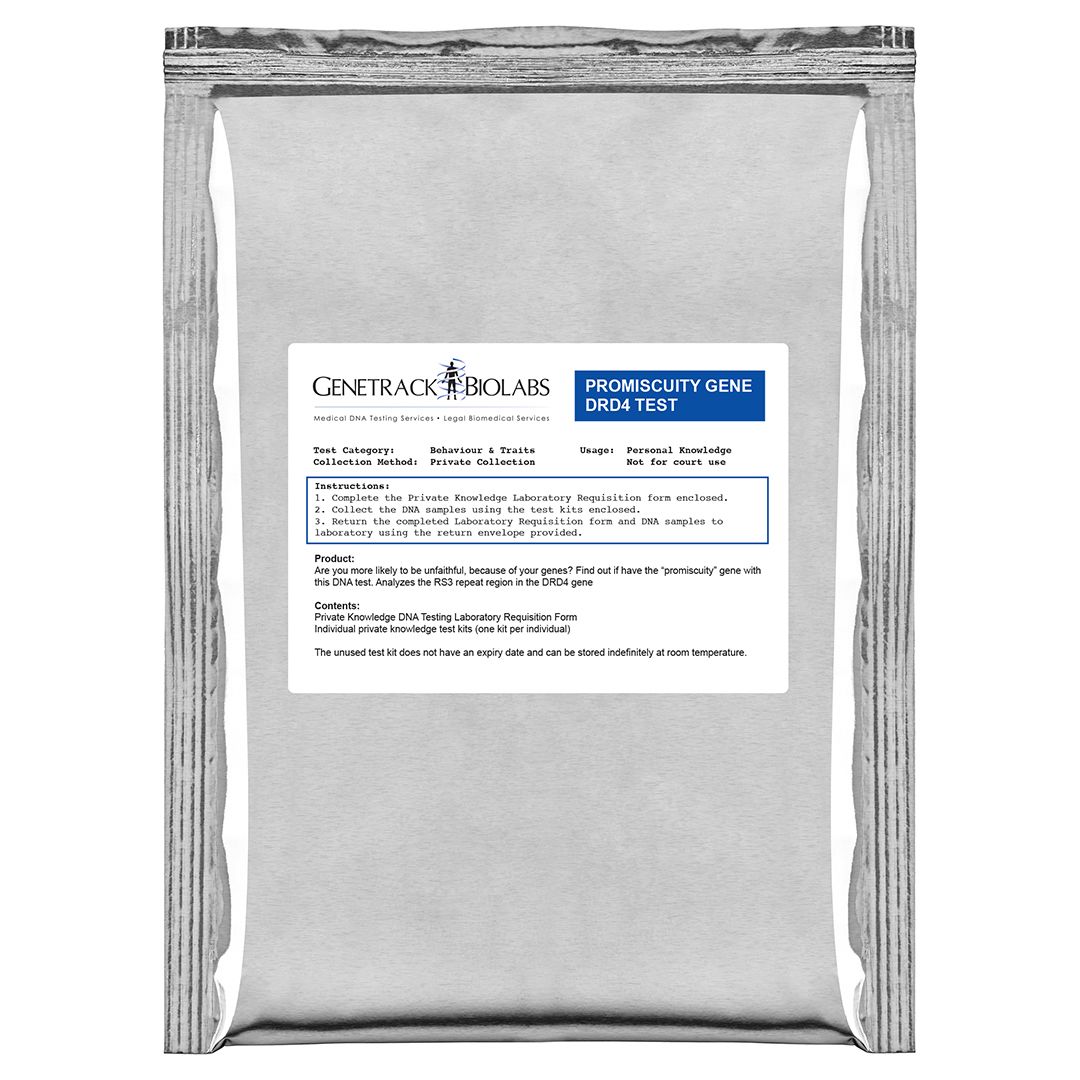Promiscuity Gene DRD4 Test
Are you more likely to be unfaithful, because of your genes?
Find out if have the “promiscuity” gene with this DNA test.
- Analyzes the RS3 repeat region in the DRD4 gene
- People who inherit at least one allele of 7 or more repeats (7R+) are more likely to be sexually promiscuous
- 100% private and confidential online results
- Do you have the “promiscuity” DRD4 gene?

From $149
DESCRIPTION
Serotonin is a neurotransmitter in the brain that gives us feelings of pleasure and well-being. When serotonin is released from cells in the brain (neurons), it sends out signals to be happy and content.
The serotonin transporter moves serotonin from the synaptic cleft into the presynaptic neuron, allowing serotonin recycling in a sodium-dependent manner. It is also important for maintaining functional neural circuits that connect the amygdala and the cingulate regions of the brain.
People with the “grouchy” gene produce lower levels of the serotonin transporter, and have smaller amygdala and cingulate regions – two brain regions involved in emotional responses.
These changes result in an increased likelihood of anxiety and depression in people with one or more copies of the “grouchy” gene. It may also reduce the response to commonly used selective serotonin reuptake inhibitors (SSRI antidepressants).
A simple mouth swab is all you need to find out if you have the “grouchy” gene.
THE GENETICS
This DNA test determines the length of the 5-HTTLPR region of the SLC64A gene. It distinguishes between the short (S) or “grouchy” form and the long (L) form of the gene.
VariantsTested
The SLC6A4 gene is located on chromosome 17. We inherit two copies of this gene – one from each parent. Inheriting one or two copies of the short (“grouchy”) form is linked to an increased risk of depression.
- People with two copies of the short, “grouchy” form are more likely to be unhappy. They will pass this form of the SLC6A4 gene to all of their children.
- People with two copies of the long form, have a decreased risk of unhappiness and depression.
- Heterozygotes have one copy of the long form and one copy of the short form. Having one copy of the “grouchy” gene also affects the level of happiness. These people have a 50% chance of passing the grouchy gene to their children.
RESPONSE TO ANTIDEPRESSANTS
Selective serotonin reuptake inhibitors (SSRIs) are antidepressants that are commonly used as first-line treatment of depression. Examples include Prozac, Zoloft and Paxil. However, 30-40% of affected people do not appear to benefit as well from these treatments.
The “grouchy” version of the SLC6A4 gene may explain some of this variation, as it is associated with a decreased response to SSRIs.
The molecular target of SSRIs is the 5-HTT serotonin transporter protein. People with the “grouchy” gene produce lower levels of this protein, therefore, they have a lower number of SSRI targets, which affects the efficacy of these commonly prescribed antidepressants.
Alternative antidepressants may be recommended for patients carrying the “grouchy” gene.
HOW IT WORKS
Step 1: Order test kit online
Step 2: Collect DNA sample using a painless mouth swab, and mail to the lab in the provided return envelope
Step 3: Receive your results online
BEHAVIOUR & TRAITS
Anxiety & Depression 5-HTTLPR Test
Promiscuity Gene DRD4 Test
